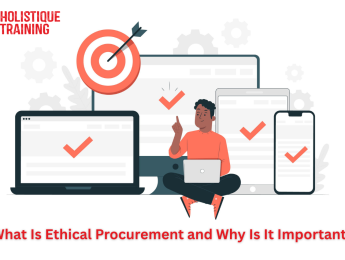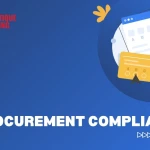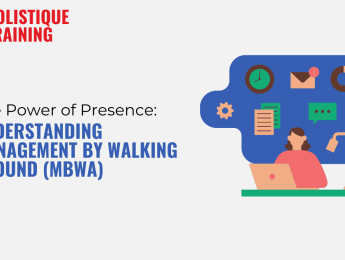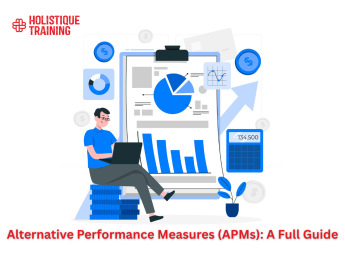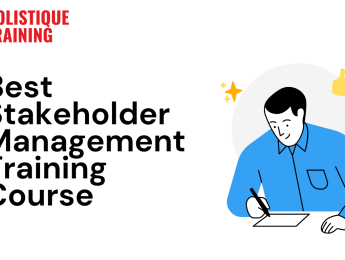- Table of Contents
- Introduction
- What is Ethical Procurement?
- Principles of Ethical Procurement
- Transparency
- Fairness
- Sustainability
- Accountability
- Social Responsibility
- Compliance in Procurement
- Regulatory Compliance
- Ethical Standards
- Supplier Audits
- Risk Management
- Training and Awareness
- Why is Ethical Procurement Important?
- Reputation Management
- Risk Mitigation
- Competitive Advantage
- Contribution to Sustainable Development
- Long-term Business Viability
- Examples of Unethical Procurement
- Exploitation of Labor
- Environmental Negligence
- Corruption and Bribery
- Lack of Transparency
- Ignoring Supplier Violations
- Best Practices for Ethical Procurement
- Establish Clear Ethical Guidelines
- Conduct Regular Supplier Audits
- Engage in Collaborative Partnerships
- Implement Transparent Procurement Processes
- Prioritize Sustainability
- Provide Training and Education
- Monitor and Evaluate Performance
- Challenges of Ethical Procurement
- Complexity of Global Supply Chains
- Differing Legal and Ethical Standards
- Resource Constraints
- Resistance to Change
- Lack of Transparency
- Evolving Ethical Standards
- Conclusion
Introduction
Ethical procurement is more than just a buzzword in the modern business landscape; it is a critical component of sustainable and responsible business practices. This blog post delves into the intricacies of ethical procurement, exploring its principles, importance, compliance factors, and the challenges organizations face in implementing it effectively. Through this exploration, we aim to provide a comprehensive understanding of why ethical procurement is essential and how businesses can adopt best practices to ensure they are sourcing goods and services responsibly.
What is Ethical Procurement?
Ethical procurement refers to the process of acquiring goods and services in a manner that considers ethical, social, and environmental factors. It goes beyond traditional procurement practices by emphasizing the importance of transparency, fairness, and sustainability in the supply chain. This approach ensures that businesses not only comply with legal requirements but also align their procurement strategies with broader corporate social responsibility (CSR) goals.
At its core, ethical procurement is about making informed purchasing decisions that minimize harm to individuals and the environment while maximizing positive outcomes for society. This involves evaluating suppliers based on their labor practices, environmental impact, and overall contribution to the community. By prioritizing these factors, companies can enhance their reputation, foster long-term partnerships, and contribute to a more equitable global economy.
Principles of Ethical Procurement
The principles of ethical procurement provide a structured framework that guides organizations in making responsible sourcing decisions. These principles are designed to ensure that procurement processes are conducted in a manner that is transparent, fair, and sustainable, ultimately contributing to the overall integrity and success of a business. Let’s explore these principles in more detail:
Transparency
Transparency in procurement involves openness and clarity throughout the entire procurement process. This principle is crucial for building trust among stakeholders, including suppliers, customers, and employees. Transparent procurement processes ensure that all parties have access to the same information, which helps prevent misunderstandings and disputes.
To achieve transparency, organizations should clearly communicate their procurement policies, criteria for supplier selection, and decision-making processes. This might include publishing procurement guidelines, making tender opportunities publicly available, and providing feedback to unsuccessful bidders. Transparency also extends to the disclosure of any potential conflicts of interest, ensuring that procurement decisions are made objectively and without undue influence.
Fairness
Fairness in procurement ensures that all suppliers are treated equitably and that the procurement process is competitive and unbiased. This principle is about providing equal opportunities for all potential vendors, regardless of their size, location, or previous relationships with the organization.
To uphold fairness, organizations should establish clear and consistent criteria for evaluating suppliers and awarding contracts. This includes using objective measures such as quality, cost, and delivery capabilities, rather than subjective factors. Additionally, organizations should avoid favoritism by rotating suppliers and regularly reviewing their supplier base to ensure diversity and inclusivity.
Sustainability
Sustainability in procurement focuses on minimizing negative environmental impacts and promoting positive social outcomes. This principle encourages organizations to consider the environmental footprint of their procurement decisions and to select suppliers who demonstrate a commitment to sustainable practices.
Sustainable procurement involves assessing the lifecycle impact of products and services, from raw material extraction to disposal. Organizations can prioritize suppliers who use renewable resources, minimize waste, and reduce carbon emissions. Furthermore, sustainable procurement extends to social sustainability, which includes supporting suppliers who provide fair wages and safe working conditions for their employees.
Accountability
Accountability in procurement means that all parties involved in the procurement process are responsible for their actions and decisions. This principle ensures that organizations and their suppliers adhere to agreed-upon standards and commitments.
To promote accountability, organizations should establish clear performance metrics and conduct regular audits of their procurement activities. This includes monitoring supplier compliance with contractual obligations, ethical standards, and regulatory requirements. Organizations should also have mechanisms in place to address non-compliance, such as corrective action plans or termination of contracts.
Social Responsibility
Social responsibility in procurement emphasizes the impact of procurement decisions on communities and society at large. This principle encourages organizations to support suppliers who contribute positively to their communities and adhere to ethical labor practices.
Socially responsible procurement involves selecting suppliers who engage in fair trade, support local economies, and invest in community development initiatives. Organizations can also prioritize suppliers who promote diversity and inclusion, providing opportunities for underrepresented groups. By considering the social implications of procurement choices, organizations can contribute to broader societal goals and enhance their corporate social responsibility (CSR) efforts.
Incorporating these principles into procurement strategies not only helps organizations align their operations with ethical standards but also fosters long-term relationships with suppliers, enhances brand reputation, and supports sustainable development goals. By committing to these principles, businesses can ensure that their procurement practices contribute to a more equitable and sustainable global economy.
Compliance in Procurement
Compliance in procurement is a fundamental aspect of ethical sourcing that ensures organizations adhere to legal, regulatory, and ethical standards throughout their procurement processes. This adherence not only safeguards businesses against potential legal repercussions but also reinforces their commitment to ethical practices and corporate social responsibility. In fact, arecent study found that 88% of global consumers prefer buying from companies with ethical sourcing structures, highlighting the importance of maintaining these standards.Let’s delve deeper into the key components of compliance in procurement:
Regulatory Compliance
Regulatory compliance involves adhering to the laws and regulations that govern procurement activities at various levels—local, national, and international. These regulations can cover a wide range of areas including labor laws, environmental standards, anti-corruption statutes, and trade restrictions.
For instance, labor laws might dictate minimum wage requirements, working hours, and safety standards that suppliers must meet. Environmental regulations could require suppliers to manage waste responsibly, reduce emissions, or use sustainable materials. Anti-corruption laws aim to prevent bribery and ensure fair competition in the procurement process. Organizations must stay informed about these regulations and ensure that their procurement practices comply with them to avoid legal penalties and reputational damage.
Ethical Standards
Beyond legal compliance, ethical standards play a crucial role in guiding procurement practices. These standards are often established by industry-specific organizations or professional bodies and provide a framework for ethical behavior in procurement.
Ethical standards may include guidelines for fair treatment of suppliers, transparency in procurement processes, and accountability for procurement decisions. Adhering to these standards helps organizations maintain integrity and build trust with stakeholders. It also ensures that procurement activities align with broader corporate values and ethical commitments.
Supplier Audits
Supplier audits are a key component of compliance, involving regular evaluations of suppliers to ensure they meet established standards. These audits assess various aspects of supplier performance, including their adherence to labor laws, environmental practices, quality standards, and ethical conduct.
Conducting supplier audits helps organizations identify potential risks and areas for improvement within their supply chain. It also provides an opportunity to engage with suppliers and support them in enhancing their compliance efforts. Regular audits can foster stronger relationships with suppliers, as they demonstrate an organization’s commitment to ethical practices and continuous improvement.
Risk Management
Compliance in procurement is closely linked to risk management, as it helps organizations identify and mitigate potential risks associated with their supply chain. This includes legal risks, such as non-compliance with regulations, as well as reputational risks stemming from unethical supplier practices.
Effective risk management involves implementing robust compliance processes, conducting thorough supplier evaluations, and establishing clear performance metrics. Organizations can also use technology to enhance compliance efforts, such as automated compliance checks and real-time monitoring of supplier activities.
Training and Awareness
Ensuring compliance in procurement requires ongoing training and awareness for employees involved in procurement activities. This includes educating staff about relevant laws, regulations, and ethical standards, as well as the organization’s own compliance policies and procedures.
Training programs can help employees understand the importance of compliance and their role in maintaining it. They can also provide practical guidance on how to identify and address compliance issues, ensuring that procurement activities are conducted ethically and responsibly.
By prioritizing compliance in procurement, organizations can safeguard their operations, enhance their reputation, and contribute to a more ethical and sustainable business environment. Compliance not only protects organizations from legal risks but also reinforces their commitment to ethical practices, helping them build trust with stakeholders and achieve long-term success.
Why is Ethical Procurement Important?
Ethical procurement is crucial for modern businesses aiming to operate responsibly and sustainably. In fact,51% of global businesses implement sustainable procurement practices to uphold ethical standards and demonstrate corporate social responsibility. Its importance extends beyond mere compliance with laws and regulations; it is integral to building a resilient and reputable organization. Here’s a deeper exploration of why ethical procurement is essential:
Reputation Management
In an era where consumers are increasingly aware of and concerned about the ethical practices of companies, maintaining a strong reputation is vital. Ethical procurement helps organizations demonstrate their commitment to responsible business practices, which can significantly enhance their brand image.According to research,56% of American consumers are likely to cease purchasing from brands they perceive as unethical. Companies that engage in ethical sourcing are often viewed more favorably by consumers, investors, and partners. This positive perception can lead to increased customer loyalty, attract top talent, and foster stronger relationships with stakeholders.
Moreover, a robust reputation for ethical practices can act as a differentiator in competitive markets, helping businesses stand out and attract new customers who prioritize ethical considerations in their purchasing decisions.
Risk Mitigation
Ethical procurement plays a critical role in mitigating various risks associated with supply chain operations. By ensuring compliance with legal and ethical standards, businesses can reduce the likelihood of facing legal challenges, financial penalties, and reputational damage. For example, sourcing from suppliers who adhere to fair labor practices and environmental regulations minimizes the risk of supply chain disruptions and negative publicity.
Additionally, ethical procurement helps organizations identify and address potential risks early, allowing them to implement corrective measures before issues escalate. This proactive approach not only protects the business but also strengthens its supply chain resilience.
Competitive Advantage
As consumers and businesses increasingly seek to engage with companies that prioritize ethical practices, ethical procurement can provide a significant competitive advantage. Organizations that demonstrate a commitment to ethical sourcing can differentiate themselves from competitors, appealing to a growing segment of ethically conscious consumers and clients.
This competitive edge can translate into new business opportunities and partnerships, as more organizations look to collaborate with suppliers and partners who share their values. Ethical procurement can also enhance employee engagement and retention, as workers are more likely to feel proud and motivated to work for a company that aligns with their personal values.
Contribution to Sustainable Development
Ethical procurement aligns with broader sustainability goals and contributes to the achievement of the United Nations Sustainable Development Goals (SDGs). By prioritizing fair labor practices, environmental stewardship, and social responsibility, companies can play a pivotal role in advancing these global objectives.
For instance, ethical procurement can support goals related to decent work and economic growth, responsible consumption and production, and climate action. By integrating sustainability into procurement strategies, organizations can contribute to positive social and environmental outcomes, helping to create a more equitable and sustainable world.
Long-term Business Viability
Ethical procurement is essential for ensuring the long-term viability of a business. By fostering strong, transparent relationships with suppliers, organizations can build a more stable and reliable supply chain. This stability is crucial for maintaining consistent quality, reducing costs, and ensuring timely delivery of goods and services.
Furthermore, ethical procurement practices can drive innovation and efficiency, as organizations work collaboratively with suppliers to develop sustainable solutions and improve processes. This focus on continuous improvement can enhance operational performance and support long-term business growth.
In summary, ethical procurement is a cornerstone of responsible business practices, offering numerous benefits that extend beyond compliance. By prioritizing ethical sourcing, organizations can enhance their reputation, mitigate risks, gain a competitive advantage, contribute to sustainable development, and ensure their long-term success. These benefits underscore the importance of integrating ethical considerations into procurement strategies, helping businesses thrive in an increasingly complex and interconnected world.
Examples of Unethical Procurement
Unethical procurement practices can have profound negative impacts on businesses, their stakeholders, and society at large. These practices not only undermine trust and integrity but also expose organizations to legal, financial, and reputational risks. Here are some detailed examples of unethical procurement:
Exploitation of Labor
One of the most egregious examples of unethical procurement is sourcing from suppliers that exploit labor. This can include the use of child labor, forced labor, or paying workers below minimum wage. Such practices violate basic human rights and can lead to severe legal consequences and reputational damage for companies involved.
For example, a company might source products from a supplier known for employing children in hazardous conditions, which not only harms the children but also reflects poorly on the company’s ethical standards. Addressing labor exploitation requires rigorous supplier audits and a commitment to fair labor practices throughout the supply chain.
Environmental Negligence
Environmental negligence in procurement involves choosing suppliers that disregard environmental regulations, leading to pollution, resource depletion, and ecological harm. This can include practices such as illegal dumping of waste, excessive emissions, or unsustainable resource extraction.
For instance, a company might procure raw materials from a supplier that engages in deforestation without proper environmental assessments. Such actions contribute to environmental degradation and can result in long-term damage to ecosystems. Ethical procurement requires evaluating the environmental impact of suppliers and prioritizing those who adhere to sustainable practices.
Corruption and Bribery
Corruption and bribery are serious unethical practices that can occur in procurement. This involves engaging in corrupt activities to secure contracts or gain an unfair advantage, such as offering or accepting bribes, kickbacks, or gifts.
An example might be a procurement officer accepting bribes from a supplier in exchange for awarding them a contract, regardless of their qualifications or compliance with standards. Such practices undermine the integrity of the procurement process and can lead to legal repercussions and loss of trust among stakeholders.
Lack of Transparency
A lack of transparency in procurement processes can lead to unethical practices such as favoritism, conflicts of interest, and unfair competition. This might involve failing to disclose procurement criteria, decisions, or potential conflicts of interest.
For example, a company might covertly favor a particular supplier due to personal relationships, without providing other vendors a fair chance to compete. This lack of transparency can result in distrust among stakeholders and damage the company’s reputation. Transparent procurement practices are essential to ensure fairness and accountability.
Ignoring Supplier Violations
Another example of unethical procurement is ignoring known violations by suppliers, such as labor abuses, environmental harm, or non-compliance with regulations. This might involve continuing to source from suppliers despite evidence of unethical practices, often due to cost savings or convenience.
For instance, a company might overlook a supplier’s poor working conditions because they offer lower prices. This not only perpetuates unethical practices but also exposes the company to reputational and legal risks. Ethical procurement requires taking corrective actions and potentially severing ties with non-compliant suppliers.
By understanding these examples of unethical procurement, organizations can better identify and address potential issues within their supply chains. Implementing rigorous ethical standards, conducting regular audits, and fostering a culture of transparency and accountability are essential steps in preventing unethical practices and promoting responsible procurement.
Best Practices for Ethical Procurement
Implementing best practices for ethical procurement is essential for organizations aiming to maintain integrity, foster sustainable relationships, and contribute positively to society. These practices help ensure that procurement activities are conducted in a manner that is transparent, fair, and responsible. Here are some detailed best practices for ethical procurement:
Establish Clear Ethical Guidelines
Developing clear ethical guidelines is the foundation of ethical procurement. Organizations should create comprehensive procurement policies that outline expectations for ethical behavior, compliance with laws, and standards for supplier conduct. These guidelines should be communicated effectively to all stakeholders, including employees and suppliers.
For example, procurement policies might include specific criteria for supplier selection, such as adherence to labor laws, environmental standards, and anti-corruption measures. By setting clear expectations, organizations can ensure that all parties involved in procurement understand their responsibilities and are committed to ethical practices.
Conduct Regular Supplier Audits
Regular supplier audits are crucial for ensuring compliance with ethical standards and identifying potential risks within the supply chain. These audits involve evaluating suppliers based on various criteria, including labor practices, environmental impact, and adherence to contractual obligations.
Organizations should implement a systematic approach to supplier audits, using both scheduled and surprise inspections to assess supplier performance. Audits should be conducted by trained professionals who can objectively evaluate compliance and provide constructive feedback. Regular audits help organizations maintain transparency, foster continuous improvement, and build trust with suppliers.
Engage in Collaborative Partnerships
Building collaborative partnerships with suppliers is a key aspect of ethical procurement. Organizations should work closely with suppliers to develop mutually beneficial relationships that prioritize ethical practices and sustainability. This involves open communication, shared goals, and joint efforts to address challenges.
Collaborative partnerships can include initiatives such as co-developing sustainable solutions, providing training and resources to improve supplier performance, and engaging in joint efforts to reduce environmental impact. By fostering collaboration, organizations can enhance supplier commitment to ethical practices and drive innovation within the supply chain.
Implement Transparent Procurement Processes
Transparency in procurement processes is essential for ensuring fairness and accountability. Organizations should establish processes that are open and clear, allowing all stakeholders to understand how decisions are made and what criteria are used for supplier selection.
Transparent procurement processes might include publicly available tender opportunities, clear evaluation criteria, and regular communication with suppliers about procurement decisions. Organizations should also disclose any potential conflicts of interest and ensure that procurement activities are conducted without favoritism. Transparency helps build trust with stakeholders and reinforces the integrity of procurement practices.
Prioritize Sustainability
Sustainability is a critical component of ethical procurement. Organizations should prioritize suppliers who demonstrate a commitment to sustainable practices, such as minimizing waste, reducing carbon emissions, and using renewable resources. Sustainable procurement involves considering the lifecycle impact of products and services, from raw material extraction to disposal.
Organizations can implement sustainability criteria in their procurement processes, such as evaluating suppliers based on their environmental certifications, resource management practices, and contributions to social sustainability. By prioritizing sustainability, organizations can reduce their environmental footprint and support broader societal goals.
Provide Training and Education
Training and education are essential for fostering a culture of ethical procurement within an organization. Employees involved in procurement activities should receive regular training on relevant laws, regulations, and ethical standards, as well as the organization’s own procurement policies.
Training programs can help employees understand the importance of ethical procurement and their role in maintaining it. They can also provide practical guidance on how to identify and address compliance issues, ensuring that procurement activities are conducted responsibly. Continuous education helps organizations stay informed about emerging ethical issues and adapt to changing standards.
Monitor and Evaluate Performance
Monitoring and evaluating performance is crucial for ensuring that ethical procurement practices are effective and continuously improved. Organizations should establish clear performance metrics for procurement activities and regularly assess their progress.
Performance evaluation can include tracking supplier compliance, measuring the impact of sustainability initiatives, and assessing the effectiveness of procurement processes. Organizations should use this data to identify areas for improvement and implement corrective actions as needed. Continuous monitoring and evaluation help organizations maintain high ethical standards and achieve long-term success.
By implementing these best practices, organizations can ensure that their procurement activities are conducted ethically and responsibly. These practices not only protect the organization from legal and reputational risks but also contribute to a more sustainable and equitable global economy.
Challenges of Ethical Procurement
While ethical procurement is crucial for maintaining integrity and sustainability in business operations, organizations often face significant challenges in implementing and maintaining ethical practices. These challenges arise from various factors, including complex supply chains, differing regulations, and resource constraints. Here’s a detailed exploration of the challenges associated with ethical procurement:
Complexity of Global Supply Chains
Modern supply chains are often global and complex, involving multiple tiers of suppliers across different countries. This complexity makes it challenging to monitor and ensure ethical practices throughout the entire supply chain. Organizations may struggle to gain visibility into the operations of sub-tier suppliers, making it difficult to identify and address unethical practices such as labor exploitation or environmental violations.
For instance, a company might source components from a supplier who, in turn, sources raw materials from another supplier in a different country with less stringent labor laws. Ensuring ethical compliance across all tiers requires robust tracking systems and collaboration, which can be resource-intensive.
Differing Legal and Ethical Standards
Legal and ethical standards vary significantly across regions, creating challenges for organizations operating internationally. What is considered ethical or compliant in one country may not align with standards in another. This discrepancy can complicate efforts to implement uniform ethical procurement practices across global operations.
Organizations must navigate these differences while ensuring compliance with local laws and maintaining their ethical commitments. This often requires adapting procurement strategies to accommodate regional variations and investing in local expertise to understand and address specific challenges.
Resource Constraints
Implementing ethical procurement practices can be resource-intensive, requiring significant investments in personnel, technology, and processes. Smaller organizations, in particular, may face challenges due to limited resources and budgets. Conducting thorough supplier audits, implementing tracking systems, and providing training all require substantial investment.
Organizations may struggle to balance the costs associated with ethical procurement against other business priorities. This challenge necessitates strategic planning to allocate resources effectively and demonstrate the long-term benefits of ethical practices, such as risk mitigation and enhanced reputation.
Resistance to Change
Resistance to change is a common challenge in implementing ethical procurement practices. Employees, suppliers, or stakeholders accustomed to existing practices may be reluctant to adopt new ethical standards or processes. This resistance can stem from a lack of understanding of the importance of ethical procurement or concerns about the impact on efficiency and profitability.
Overcoming resistance requires effective change management strategies, including clear communication of the benefits of ethical procurement, engaging stakeholders in the process, and providing training and support. Building a culture that values ethical practices can help mitigate resistance and foster acceptance.
Lack of Transparency
A lack of transparency in supply chains can hinder efforts to implement ethical procurement. Without clear visibility into supplier operations, organizations may struggle to verify compliance with ethical standards or identify areas for improvement. This lack of transparency can result from inadequate tracking systems, limited access to supplier data, or unwillingness of suppliers to disclose information.
Organizations must invest in technologies and processes that enhance transparency, such as blockchain for supply chain tracking or platforms for real-time data sharing. Encouraging open communication and collaboration with suppliers can also improve transparency and accountability.
Evolving Ethical Standards
Ethical standards are continually evolving, driven by changes in regulations, societal expectations, and industry best practices. Keeping up with these changes and adapting procurement strategies accordingly can be challenging for organizations. Failure to stay informed about emerging ethical issues can result in non-compliance and reputational damage.
Organizations must establish mechanisms for monitoring changes in ethical standards and integrating them into procurement practices. This includes engaging with industry bodies, participating in forums, and leveraging expert insights to stay ahead of developments.
By understanding and addressing these challenges, organizations can better navigate the complexities of ethical procurement and implement practices that align with their values and objectives. Overcoming these challenges requires strategic planning, collaboration, and a commitment to continuous improvement, ensuring that ethical procurement remains a cornerstone of responsible business operations.
Conclusion
Ethical procurement is a vital component of responsible business practices, offering numerous benefits for organizations, their stakeholders, and society as a whole. By prioritizing transparency, fairness, sustainability, accountability, and social responsibility, companies can enhance their reputation, mitigate risks, and contribute to a more equitable global economy.
While the journey to ethical procurement is not without challenges, adopting best practices and fostering a culture of ethics can lead to meaningful change. As businesses continue to navigate an increasingly complex and interconnected world, ethical procurement will remain a critical factor in achieving long-term success and sustainability. By committing to responsible sourcing, organizations can play a pivotal role in shaping a more ethical and sustainable future for all.


